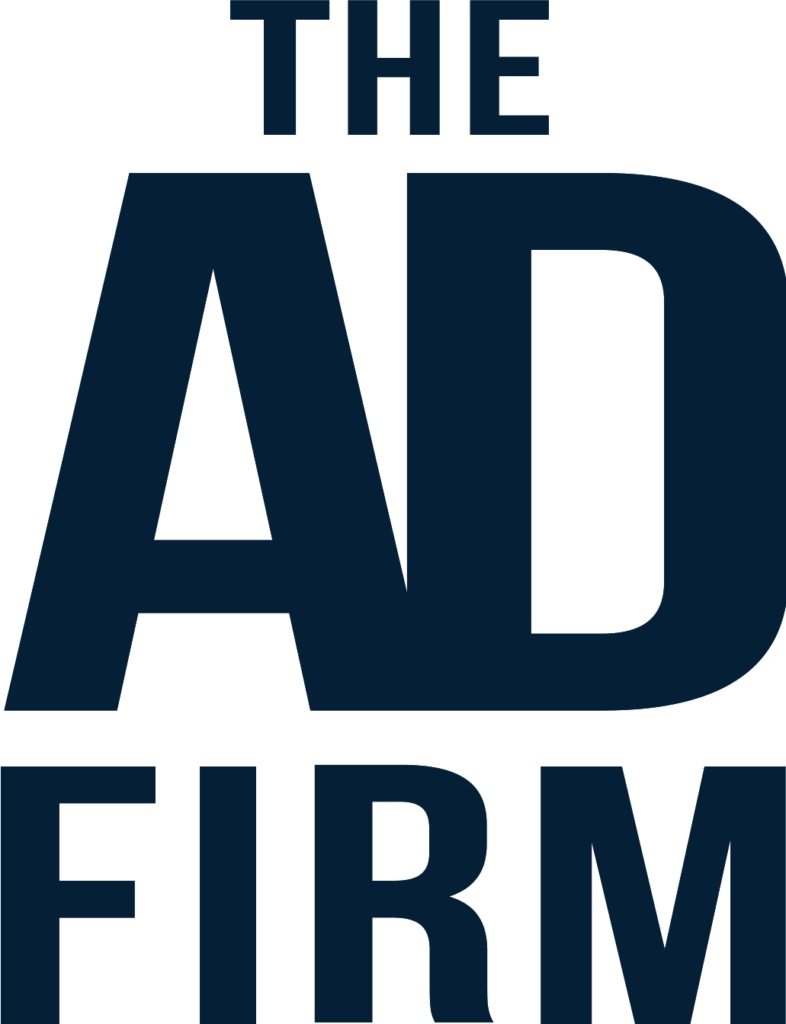Imagine you’ve just opened a small business in a competitive market. You’re ready to showcase your unique offerings to the world, but how do you ensure people find you online among countless competitors? This is where mastering Search Engine Optimization (SEO) becomes crucial. SEO isn’t just for tech wizards; it’s a practical toolkit that any small business owner can use to significantly boost online visibility without breaking the bank.
In this post, we’ll explore simple yet effective SEO strategies that deliver quick results, enhance your presence, and engage more potential customers efficiently. Let’s dive into these actionable insights and give your small business the spotlight it deserves in the digital arena.
Understanding SEO Basics
Search Engine Optimization (SEO) encompasses a variety of strategies and techniques aimed at improving the visibility of your website in search engine results. Understanding the basics of SEO is crucial for any small business owner looking to take advantage of the web to attract more customers. It’s not just about being found; it’s about being seen by the right people at the right time with the right solutions.
What is SEO and Why is it Important for Your Business?
SEO involves optimizing your digital content and website structure to make your site more attractive to search engines like Google. By doing so, you increase the likelihood that your site will appear higher in search results when potential customers search for keywords related to your business. This is vital because higher visibility typically translates to more traffic, and more traffic can mean more sales and better brand recognition.
Key Components of SEO: A Quick Overview
The main elements of SEO can be distilled into several key components:
- Keywords: The phrases and terms that users enter into search engines. Your content should include these keywords naturally to help your pages rank for relevant searches.
- Content: The ‘king’ of SEO, good content not only needs to be engaging and relevant but also optimized for the keywords you want to rank for.
- Backlinks: Links from other sites to yours, which serve as endorsements in the eyes of search engines, improving your site’s authority and ranking.
- Technical SEO: This involves optimizing the infrastructure of your site so that search engines can easily crawl and index your pages.
- User Experience (UX): Ensuring your website is user-friendly and provides a good user experience helps retain visitors and reduce bounce rates, which are beneficial for SEO.
An SEO company can help you create and implement an effective SEO strategy that encompasses all these elements, but there are also quick wins you can achieve on your own to see immediate improvements.
1. Optimize Your Google Business Profile
For local businesses, a Google Business Profile is a crucial tool. It not only boosts your visibility in local search results but also provides potential customers with essential information about your business.
Claiming and Verifying Your Profile
To take control of your Google Business Profile, follow these steps:
- Visit Google My Business: Start by going to the Google My Business website.
- Create or Log in: Sign in with a Google account associated with your business.
- Enter Your Business Information: Fill in your business name, location, and contact information. Be precise and comprehensive.
- Verification: Google will require you to verify your business to confirm that the information is accurate and that you are the rightful owner. This can be done via mail, phone, or email.
Tips for Effective Profile Optimization
Optimizing your Google Business Profile effectively can lead to better local rankings and more customer interactions:
- Ensure accuracy and completeness: Make sure all information is current and correct. Include hours of operation, contact info, and a business description.
- Add high-quality photos and videos: Visuals can greatly enhance the attractiveness of your profile.
- Gather reviews: Encourage your customers to leave positive reviews and respond thoughtfully to each review.
- Use posts to engage: Regular updates or posts about promotions, events, or news can keep your profile lively and engaging for potential customers.
2. Keyword Research and Optimization
Keywords are the foundation of effective SEO. Choosing the right keywords is crucial for reaching your target audience.
Long-tail keywords are longer, more specific phrases that visitors are more likely to use when they’re closer to the point of purchase or when using voice search. They are generally less competitive but can attract more targeted traffic. For instance, instead of targeting “bakery,” a small business might target “custom gluten-free cakes in Austin.” Here’s how to identify effective long-tail keywords:
- Think like a customer: Identify what your customers are likely to search for when looking for your products or services.
- Use keyword research tools: Tools like Google’s Keyword Planner, Moz Keyword Explorer, or Ahrefs Keywords Explorer can provide insights into the search volume and competition for potential keywords.
- Analyze the competition: Look at what keywords your competitors are targeting and how they rank for those keywords. This can give you clues about gaps in their strategies that you could exploit.
Tools and Techniques for Keyword Optimization
Once you have identified your target keywords, it’s crucial to optimize your content for these terms. Here are some tools and techniques to help:
- Google Keyword Planner: This free tool from Google AdWords can show you keyword ideas and traffic data, which is helpful in understanding the kind of terms your audience is using.
- Yoast SEO: This WordPress plugin helps you optimize your content with focus keywords, synonyms, and related keywords, ensuring your writing remains reader-friendly.
- SEMRush: Offers a suite of SEO tools that allow you to perform deep keyword research and track the keyword strategy used by your competition.
3. Enhancing Website Performance
Your website’s performance is a significant factor in your SEO success. A faster site provides a better user experience and improves your rankings in search engines. Google has explicitly stated that page speed is a ranking factor, especially for mobile searches. Slow loading times can increase bounce rates as visitors become frustrated and leave your site before it even fully loads.
Improving your website’s loading time can be achieved with a few strategic adjustments:
- Optimize Images: Ensure that images are not larger than necessary, are in the right file format, and are compressed for the web.
- Enable Browser Caching: When you enable caching, you store some data on a visitor’s device so that it doesn’t have to be reloaded each time they visit your page.
- Minimize Code: Streamline the code on your website by removing unnecessary spaces, characters, and comments. Utilize CSS and JavaScript minification tools.
- Use a Content Delivery Network (CDN): CDNs distribute the load of delivering content by storing copies of your site at multiple, geographically diverse data centers so that users have faster and more reliable access to your site.
Digital marketing services that offer web development services can help you optimize your website’s performance and ensure it meets Google’s standards for speed.
4. Content is King
The quality of your content is one of the most important factors for SEO. Engaging, relevant content not only attracts more traffic but also encourages visitors to stay on your site longer, which can positively affect your search rankings.
Here’s how you can ensure your content meets these criteria:
- Understand your audience: Know what your audience finds interesting and relevant. Use surveys, social media interactions, and customer feedback to gather insights.
- Solve problems: Create content that addresses common problems or questions that your target audience has.
- Use clear, concise language: Your content should be easy to read and free of jargon, ensuring it’s accessible to a broad audience.
- Incorporate multimedia: Use images, videos, infographics, and other media to make your content more engaging and easier to understand.
Updating and Refreshing Old Content
Keeping your content fresh is just as important as creating new content. Updating your old content keeps it relevant to current visitors and can also give it a boost in search rankings. This includes updating outdated facts, swapping old images, adding new links, and improving readability or SEO if needed.
5. Build Quality Backlinks
Backlinks — links from other websites to yours — are essential for SEO. They help build credibility and authority, which can significantly impact your site’s ranking.
What Are Backlinks and Why Do They Matter?
Backlinks are a major ranking factor for search engines because they signal to search engines that other websites vouch for your content. When high-quality sites link to yours, it tells search engines that your site has valuable content, which can help to boost your rankings.
Strategies to Earn Trustworthy Backlinks
Here are several effective strategies to gain high-quality backlinks:
- Create link-worthy content: Content that is original, informative, and engaging is more likely to be linked by other websites.
- Guest blogging: Write articles for reputable sites in your industry. This can help you reach a wider audience and gain backlinks.
- Participate in industry forums and blogs: Engage with your community by commenting on blogs and forums. This can help you build relationships and attract backlinks naturally.
- Leverage partnerships: Collaborate with other businesses and organizations to host events, sponsorships, or webinars, and include your link on their promotional materials.
6. Utilize Schema Markup
Schema markup is a powerful tool that helps search engines understand your content better and enhance the display of your search results.
Schema markup is code (semantic vocabulary) that you put on your website to help the search engines return more informative results for users. It tells the search engines what your data means, not just what it says. This can include details like your business hours, product prices, and user reviews, which are then displayed on search engine results pages, potentially increasing click-through rates.
How Schema Enhances Your Search Presence
Using schema markup can enhance your search presence by providing rich snippets that make your listings stand out. Here are some ways schema can boost your SEO:
- Rich Snippets: Enhance your search results with visuals like star ratings, author photo, or prices for products.
- Increased Click-Through Rates (CTR): More detailed results tend to get higher clicks because they offer more information at a glance.
- Better Targeting: With accurate metadata, search engines can better understand and display your content to relevant audiences.
7. Regular SEO Audits
Regular SEO audits are essential to maintain and improve your search engine rankings. They help you understand what’s working and identify areas that need improvement.
Identifying Common SEO Issues
During an SEO audit, you can uncover a variety of issues that could be impacting your site’s performance, such as:
- Technical Issues: Broken links, crawl errors, or unoptimized HTML.
- Content Issues: Duplicate content, missing page titles, or poor keyword optimization.
- User Experience Problems: Difficult navigation, mobile incompatibility, or slow page load times.
- Security Concerns: Lack of HTTPS, which can deter visitors and lower rankings.
Tools for Conducting SEO Audits
Several tools can make the process of conducting an SEO audit easier:
- Google Analytics: Provides insights into your website’s traffic and user behavior.
- Ahrefs: Offers a suite of tools to analyze your website’s health and backlinks.
- SEMrush: Provides a detailed audit report that includes errors and suggestions for improvement.
A local SEO agency like The Ad Firm can also conduct an SEO audit for you and offer strategies to improve your website’s performance.
8. Leverage HARO for Backlinks
Using Help a Reporter Out (HARO) is a strategic way to gain quality backlinks and increase your media exposure.
How to Use Help a Reporter Out (HARO)
To effectively use HARO, follow these steps:
- Sign up for HARO and select categories relevant to your expertise.
- Scan for Queries: Regularly check for reporter inquiries that you can answer.
- Write Compelling Pitches: Respond with detailed, insightful, and concise answers.
- Be Timely: Responses are more likely to be used if they are submitted promptly.
Best Practices for Effective HARO Engagement
To maximize your chances of success with HARO, consider these tips:
- Be Relevant and Helpful: Only respond to queries where you have genuine expertise.
- Include Data and Examples: Back up your claims with data or real-life examples.
- Build Relationships: Engage with journalists beyond HARO to build ongoing relationships.
9. Local SEO: Claiming Your Space
Local SEO is crucial because it helps businesses promote their products and services to local customers at the exact time they’re looking for them online. This targeted approach can significantly increase traffic and improve conversion rates.
To dominate in local search, small businesses should:
- Optimize for Local Keywords: Use location-specific keywords in your content and metadata.
- Create Location-Specific Pages: If you serve multiple areas, consider creating a dedicated page for each location.
- Engage with Local Communities: Participate in community events and share local news to increase your local presence.
Elevating Your Business: Simple Steps to SEO Success
As we wrap up this exploration of SEO quick wins for small businesses, remember that these strategies are just the beginning. Implementing even a few of these tips can lead to noticeable improvements in your online visibility and search rankings. SEO is an ongoing journey, not a one-time task, and it requires continuous learning and adaptation to the ever-evolving digital landscape.
To maintain momentum and stay ahead of SEO trends, consider partnering with a digital marketing agency like The Ad Firm. These experts can provide tailored advice, monitor the effectiveness of your SEO strategies, and help fine-tune your approach to ensure long-term success. By leveraging professional expertise, you can maximize your online potential, turning your small business into a formidable presence in the digital marketplace.









